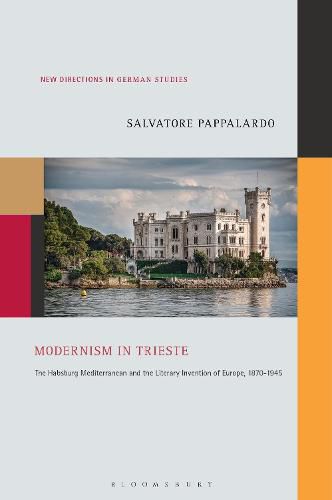Readings Newsletter
Become a Readings Member to make your shopping experience even easier.
Sign in or sign up for free!
You’re not far away from qualifying for FREE standard shipping within Australia
You’ve qualified for FREE standard shipping within Australia
The cart is loading…






When we think about the process of European unification, our conversations inevitably ponder questions of economic cooperation and international politics. Salvatore Pappalardo offers a new and engaging perspective, arguing that the idea of European unity is also the product of a modern literary imagination. This book examines the idea of Europe in the modernist literature of primarily Robert Musil, Italo Svevo, and James Joyce (but also of Theodor Daubler and Srecko Kosovel), all authors who had a deep connection with the port city of Trieste.
Writing after World War I, when the contested city joined Italy, these authors resisted the easy nostalgia of the postwar period, radically reimagining the origins of Europe in the Mediterranean culture of the Phoenicians, contrasting a 19th-century nationalist discourse that saw Europe as the heir of a Greek and Roman legacy. These writers saw the Adriatic city, a cosmopolitan bazaar under the Habsburg Empire, as a social laboratory of European integration. Modernism in Trieste seeks to fill a critical gap in the extant scholarship, securing the literary history of Trieste within the context of current research on Habsburg and Austrian literature.
$9.00 standard shipping within Australia
FREE standard shipping within Australia for orders over $100.00
Express & International shipping calculated at checkout
When we think about the process of European unification, our conversations inevitably ponder questions of economic cooperation and international politics. Salvatore Pappalardo offers a new and engaging perspective, arguing that the idea of European unity is also the product of a modern literary imagination. This book examines the idea of Europe in the modernist literature of primarily Robert Musil, Italo Svevo, and James Joyce (but also of Theodor Daubler and Srecko Kosovel), all authors who had a deep connection with the port city of Trieste.
Writing after World War I, when the contested city joined Italy, these authors resisted the easy nostalgia of the postwar period, radically reimagining the origins of Europe in the Mediterranean culture of the Phoenicians, contrasting a 19th-century nationalist discourse that saw Europe as the heir of a Greek and Roman legacy. These writers saw the Adriatic city, a cosmopolitan bazaar under the Habsburg Empire, as a social laboratory of European integration. Modernism in Trieste seeks to fill a critical gap in the extant scholarship, securing the literary history of Trieste within the context of current research on Habsburg and Austrian literature.